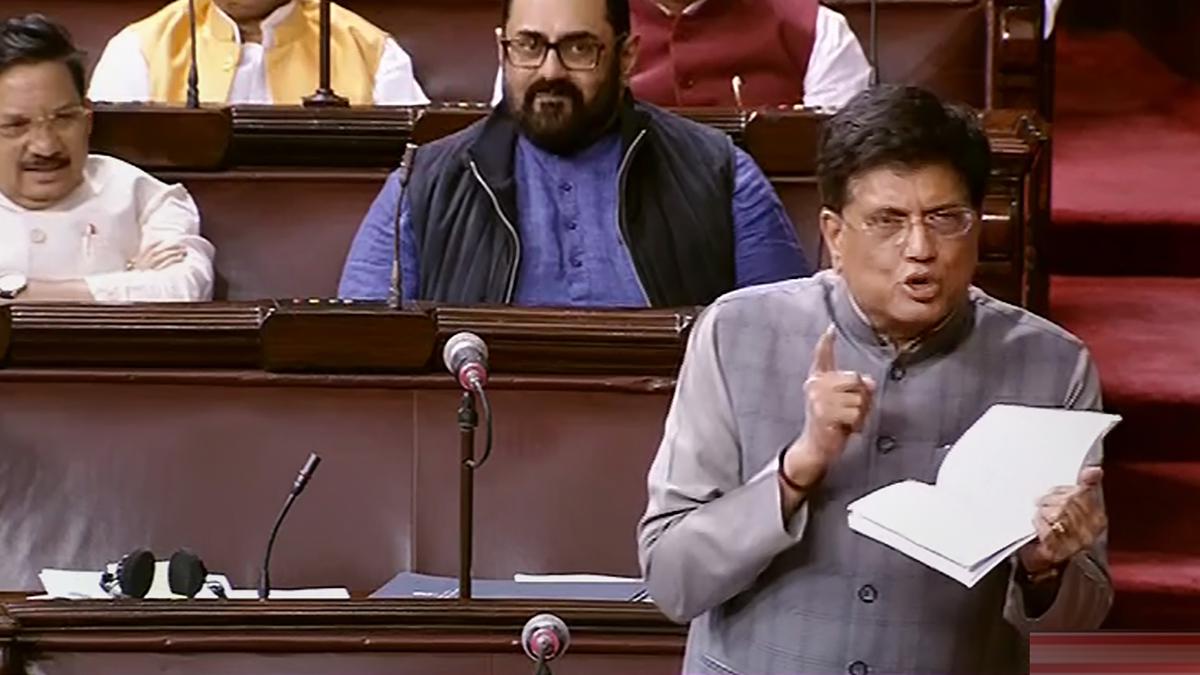
Explained | The Jan Vishwas (Amendment of Provisions) Bill, 2023 Premium
The Hindu
The Hindu explains the Jan Vishwas Bill which seeks to decriminalise minor offences under 42 Acts to reduce compliance burden and promote ease of living and doing business. The Bill will be taken up in the upcoming Monsoon Session of Parliament.
The story so far: Among the Bills set to be taken up during the Monsoon Session of the Parliament, which started on July 20 is the Jan Vishwas (Amendment of Provisions) Bill, which seeks to redefine the regulatory landscape of the country with decriminalisation of minor offences under 42 Acts to reduce compliance burden and promote ease of living and doing business in the country.
The proposed legislation was tabled in Parliament by the Union Ministry of Commerce and Industry in December last year. It was later referred to a Joint Parliamentary Committee (JPC) for review. The JPC presented its report with seven general recommendations to Parliament during the Budget Session in March. As per reports, most recommendations of the JPC have been approved by the Union Cabinet, clearing the way for its passing.
Also read:Explained | What to expect from the Monsoon Session of Parliament?
The Jan Vishwas Bill aims to decriminalise around 180 offences across 42 laws governing environment, agriculture, media, industry and trade, publication, and other domains that create barriers to the ease of doing business in the country. It seeks to completely remove or replace imprisonment clauses with monetary fines, to provide a boost to the business ecosystem and improve the well-being of the public. The Bill also proposes compounding of offences in some provisions.
Broadly, the draft proposes the following changes in existing Acts:
Micro, small and medium-scale businesses are the backbone of the Indian economy and contribute significantly to the Gross Domestic Product (GDP). For these enterprises to make a shift to the formal sector and generate jobs and income, there must be effective and efficient business regulations in place that eliminate unnecessary red tape.
Currently, there are 1,536 laws which translate into around 70,000 compliances that govern doing business in India. These excessive compliances have proved onerous for business enterprises, especially MSMEs.

 Run 3 Space | Play Space Running Game
Run 3 Space | Play Space Running Game Traffic Jam 3D | Online Racing Game
Traffic Jam 3D | Online Racing Game Duck Hunt | Play Old Classic Game
Duck Hunt | Play Old Classic Game











